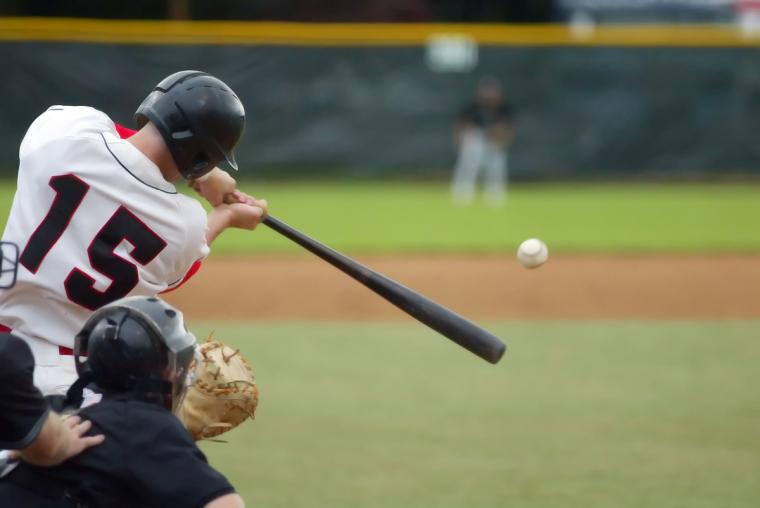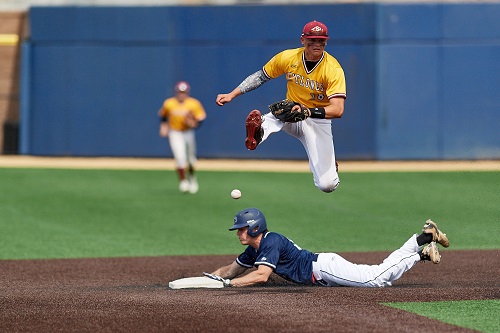An Interview with Sandy Sanderson, CEO


The National Federation of Collegiate Club Sports Leagues, L.L.C. (CollClubSports) is a compilation of governing bodies that oversee collegiate club athletics. Formed in 2000 to offer club-level baseball to colleges, the organization has expanded its scope over the years to offer competitive play culminating in separate championships in baseball for Divisions I, II and III, as well as championships in softball, football and men’s and women’s basketball.
Sports Destination Management: Starting in 2020, we saw a number of colleges cut varsity teams and, in many cases, their entire roster of sports. Do you think that will feed into the growth of sports at the club level for colleges?
Sandy Sanderson: We haven’t seen that yet. It sounds like something that should be happening but unfortunately, it’s not that simple. Right now, we’re in the process of renewing school teams for the 2021-2022 academic year and some schools are saying they may not even carry club sports next year because of budget cuts.
SDM: The pandemic has hurt everyone. What was your growth pattern like before that?
Sanderson: Every year, we’d had positive numbers. I’d like to get back to that, obviously. My goal for the coming school year is to be at 70 percent of where we were before COVID. It is a big step back, but I believe we could strategically manage that and still provide a good experience for athletes.
SDM: You offer four different sports, one in multiple divisions. Were you able to have championships this year?
Sanderson: We were able to hold two championships: our softball world series and our baseball national championship but those looked different this year. Only 22 of our softball teams were cleared to play so we had to change the format of the World Series. Then, in baseball, because we didn’t have enough teams to compete in any one division, we combined all three divisions – I, II and III – and held the championship that way. It wasn’t ideal because some of the teams were mismatched but everyone was absolutely so glad to return to play.
We also saw a tremendous turnout of spectators – a lot of people who were friends and family of the athletes on the teams, and they were willing to travel to attend the championships, to Kansas for the Baseball National Championship and to Georgia for the Softball World Series. They’d been waiting so long to see this that they just wanted to get out and go, even if it meant traveling the big distances.
SDM: You normally like to set the locations of your championships in advance. Have you had to make any changes in that regard?
Sanderson: We might be looking at having to change some locations. We try to stay centrally located but if a lot of schools don’t come back, our concept of what a central location is could change, depending on what schools we do have. And we still have some cities where outside tournaments aren’t allowed yet.
SDM: If a city is interested in possibly hosting, should they reach out to you?
Sanderson: Yes, they definitely should. They can send an e-mail to Sandy.Sanderson@CollClubSports.com.
SDM: We have had conversations in the past about the value of club sports; because they have more responsibility for their team, students actually have a more beneficial experience than a varsity athlete who has not had to do the legwork for the sport.
Sanderson: Oh, absolutely. I also see so many kids who are very concerned about getting a job after college. They don’t want to do six days a week with a varsity sport because they won’t have time for studying. We’re also heavily focused on creating a competitive environment for them at this level of the sport, whereas with intramurals, it’s more of a leisure activity.
Another thing I love about club sports is the social aspect. A lot of students start college, and they don’t know anyone. When they join a club sport, they find people who share the same interests. And maybe if you’re not as good at baseball as your friends, you take the role of team manager or coach, and you do that for four years and when you come out of college, you might get a job as a high school coach or rec manager because you have that experience and those leadership skills. There’s a place for everyone in club sports.

